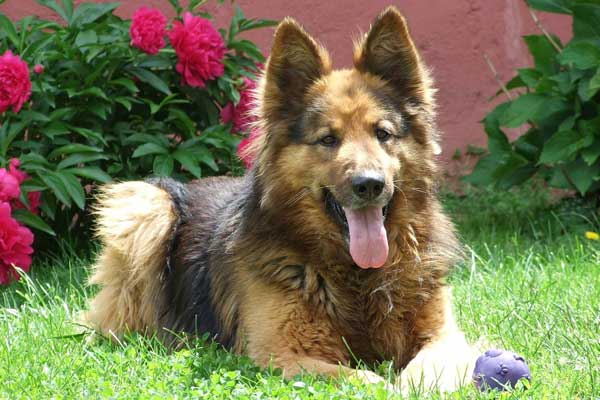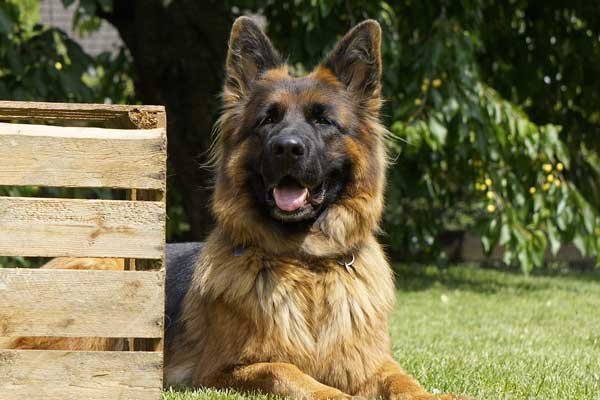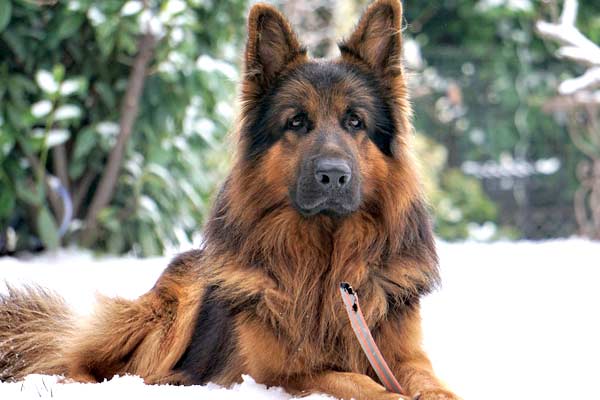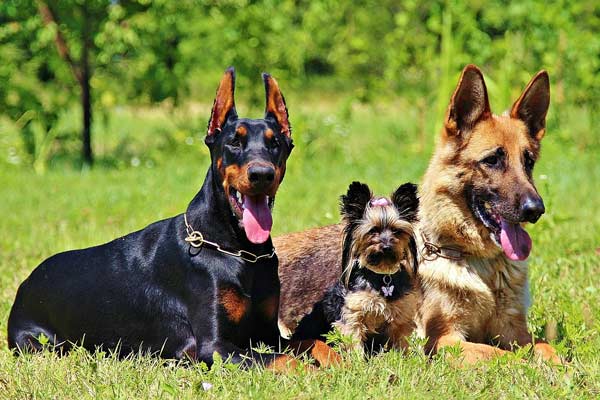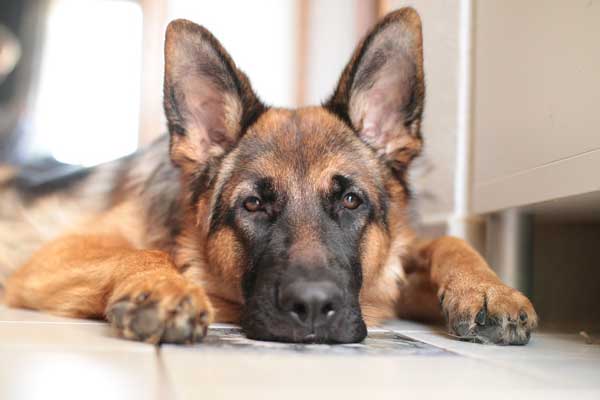Do German Shepherds Smell? Find Out Whether You Should Be Concerned About
Do German Shepherds smell? People often wonder when considering adding a German Shepherd to their family.
While German Shepherds may not be known for having an unpleasant odor, certain factors can increase the scent they produce.
This article will explore the causes behind German Shepherd odors and look at ways to reduce or eliminate these smells.
We will also discuss proper grooming practices and how often you should bathe German Shepherds to keep them smelling fresh!
Do German Shepherds Smell?
German Shepherds are not known to be a particularly smelly breed, but that doesn’t mean they don’t have any odor at all. Their smell is usually mild and is often caused by the natural oils in their coat.
This smell shouldn’t be too overpowering or offensive; however, it can be intensified if their coat gets dirty. Regular brushing and grooming can help reduce any odors associated with your German Shepherd.
It is also essential to ensure that you bathe your pet as needed or if they get particularly dirty.
Causes of German Shepherd Odor
Skin infections can often cause a German Shepherd odor. These infections can range from bacterial, fungal, and parasite. Common symptoms include:
- Itchy skin.
- Redness and bumps.
- Loss of fur in certain areas.
- Flaky skin.
- An unpleasant smell.
These infections can lead to hair loss and even skin abscesses in more severe cases.
Perianal fistula is another common cause of German Shepherd odor. This condition occurs when the anal glands in your dog become infected, causing an unpleasant smell due to discharge from these glands.
Symptoms include scooting, bloody or pus-filled discharge, and hair loss around the rectal area.
Dermatitis, or skin inflammation, can also cause German Shepherd odor. Allergies or irritants cause this condition, and symptoms include redness, flaky skin, and hair loss. More severe cases can lead to infection and an unpleasant smell.
Ear infections can also cause German Shepherd odor. These infections are caused by bacterial or yeast overgrowth, and symptoms include head shaking, discharge from the ears, scratching at the ears, and a bad smell.
Flatulence is another common cause of German Shepherd odor. The bacteria cause this in your pet’s digestive system, producing gas that can be pretty smelly.
Bad breath is also a common cause of German Shepherd odor. This can be caused by dental issues such as tartar buildup on the teeth or gum disease.
It’s essential to regularly brush your pet’s teeth and have them examined by a veterinarian to ensure their oral health is in check.
A urinary tract infection can also lead to an unpleasant smell. This condition occurs when bacteria enter the bladder, causing symptoms such as frequent urination, burning or pain during urination, and an abnormal odor.
Poor grooming can cause a German Shepherd odor. This means not brushing your pet regularly and not bathing them as often as necessary.
Also, ensure to keep their nails trimmed and clean their ears regularly to help prevent any bad odors.
Bathing your dog too often can also lead to an unpleasant smell. This is because when you bathe your pet, you strip its coat of natural oils, which act as a natural deodorizer.
Bathing your German Shepherd only once every month or two is usually enough to keep them clean and smelling fresh.
Anal glands can also cause German Shepherd odor. These glands near the rectum secrete an unpleasant-smelling fluid when your pet is scared or excited.
If these glands become impacted, infected, or inflamed, they can lead to an unpleasant smell from your dog.
Excessive licking can also lead to an unpleasant odor. This is because when your pet licks itself, it spreads bacteria from its mouth and saliva onto its fur, resulting in a bad smell.
Bacterial infections such as pyoderma can also cause German Shepherd odor. Symptoms include scabs, bumps, hair loss, and an unpleasant smell. If you notice any of these symptoms, you must take your pet to the vet immediately for treatment.
Yeast infections can also cause an unpleasant smell. This is caused by an overgrowth of yeast on the skin, which can occur due to poor diet or allergies.
Symptoms include itchiness, redness, and a bad odor. Treatment usually involves antifungal medication prescribed by your vet.
Stress can cause your pet to produce more sweat, creating an unpleasant smell. Stress can also be a cause of German Shepherd odor.
Reducing stress by providing plenty of exercise and playtime is essential for keeping your pet healthy and smelling fresh.
Diet can also contribute to German Shepherd odor. Feeding your pet the wrong food can create an unpleasant smell. Ensure your pet has a high-quality diet balanced with protein, fat, and fiber.
How to Reduce German Shepherds Smelling?
The German Shepherd is a beloved and loyal companion, but unfortunately, they can sometimes have strong odors.
You can do several things as a responsible dog owner to reduce or prevent unpleasant smells from your dog.
1. Provide a balanced, nutrient-rich diet appropriate for their size and age. Avoid processed foods with too much salt, sugar, or fat, which can make them smell worse.
2. Invest in safe dental chews to help keep your German Shepherd’s teeth and gums healthy while reducing bacteria buildup that can lead to smelly breath.
3. Feed a diet rich in essential fatty acids, like omega 3 and 6, to help keep their skin healthy and coat shiny. Regular grooming and brushing will help remove dirt, dandruff, and excess oils that can lead to bad smells.
4. Make sure to wipe down your German Shepherd’s ears with a damp cloth after swimming or bathing to remove any excess moisture that can lead to bacteria growth.
5. Bathe your German Shepherd only when needed and use a gentle, scent-free shampoo to prevent stripping away essential oils from their coat which can lead to bad smells.
6. Washing your dog’s feet after each walk is a great way to reduce odors from the street and sidewalks.
7. Remember to get routine veterinary care for your German Shepherd, as regular checkups can help detect any health issues causing unpleasant odors.
8. Use flea prevention on your German Shepherd, as parasite infestations can cause bad smells. Speak to your veterinarian about what flea prevention is best for your pet.
Following these steps will help keep your beloved German Shepherd smelling fresh and clean!
How to Make My German Shepherd Smell Better?
- Use no-rinse dog shampoo to keep your dog smelling great.
- Brush your German Shepherd’s teeth regularly and use dental pads between brushing.
- Dry your German Shepherd quickly if they get wet to avoid odors caused by damp fur.
- Groom your dog weekly to remove dirt, oils, and dead hair that can create a funky smell.
- Change their bedding often and vacuum the area where they sleep to help keep them clean.
- Bathe dogs every two months using pet-safe shampoos specifically designed for their breed type or coat color.
- Adjust their diet to ensure they get all the vitamins needed for healthy skin and coat maintenance, which will also help with odors.
- Keep their living space clean and clear of any items contributing to any smells.
- Make sure your German Shepherd gets enough exercise to help reduce outdoor odors.
- Change their collar or harness often, as the oils and dirt can create a bad smell.
- Try using all-natural grooming products that are free of harsh chemicals.
- Trim their nails regularly, as overgrown nails can trap dirt and bacteria that can cause bad smells.
- Give them regular treats or supplements with probiotics to help keep their digestive system healthy and reduce foul odors.
- Make sure they are drinking enough water to help flush out toxins and bacteria that can cause bad smells.
Follow these tips, and you’ll be able to keep your German ShepherdShepherd smelling great!

